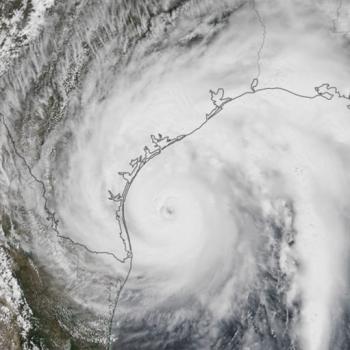 When I tell people I’m fasting for Lent, I typically get a double-take.
When I tell people I’m fasting for Lent, I typically get a double-take.
“But you aren’t … religious …” is typically the first response. And it’s true that in the way “religious” is generally defined, I’m not. My beliefs, such they are, are far from orthodox. Yet this morning I downloaded the Magnificat Lenten Companion (which will no doubt contain anecdotes I’ll take issue with) and began another Lenten fast.
I began fasting for Lent in 2008. My life felt somewhat directionless, yet I felt something could be right around the corner (turns out it was – I met my wife just after Easter that year). I gave up alcohol and meat that year (alcohol for this oenophile is almost always something I give up), and found myself strangely focused. Giving up normal indulgences made me constantly aware that I was doing something – whatever that something was. And I began to look inwardly for solutions to my challenges.
It’s true I’m not religious in the popular use of that word. But I love ritual, and ritual is older than our newfound (largely Western and Christian) definitions of religion. I love the ritual, seasonal cycle of the liturgical year, and every year, while suffering the hangover from the excesses of consumption that mark the holidays (a ritual balm in the bleak of winter I also greatly enjoy), I find Lent to be the perfect counterpart to that excess—a time to await the advent of spring and a new year with contemplative stillness.
For me, fasting for a period of time after the holidays restores my equilibrium for the remainder of the year.
I realize that fasting is in many ways a first-world luxury. There are people the world over who do without even basic necessities every day; like most Americans, my daily life is spent in the absence of want. Sure, there are things I would buy if I had more money, but by and large if I want a glass of wine, I have one. If I want a new album, movie, or collectible, I buy it. A Lenten fast (this year I am giving up alcohol and nonessential spending) helps to remind me of the basics of the human experience, without the mass consumption that is so much a part of our culture (and I speak as one of its most guilty practitioners).
It’s said that Lent comes from Jesus’ 40 days in the wilderness, and admittedly, giving up Internet shopping and Australian Shiraz is hardly a trip through the desert. But our oldest Gospel witness, the Book of Mark (1:12-13), says simply:
And the Spirit immediately drove him out into the desert. He was in the wilderness for forty days, tempted by Satan; and he was with the wild beasts; and the angels waited on him.
So before the more commonly known stories found in Matthew and Luke, the Spirit drove Jesus out. But the angels waited on him. He wasn’t alone and helpless, just . . . apart. This time-away-from-reality is depicted as his training for his ministry to come, and in that way the story mirrors hero myths across cultures, wherein the protagonist must leave and travel through wilderness before tackling the mission of his destiny.
For most of us, that mission is merely life’s survival: working, raising children, paying the mortgage (and we’re lucky if that’s all it is). But sometimes it’s nice to focus on the simplicity of those often Sisyphean tasks for six weeks before confronting another year of their challenges.
I’m excited about Lent this year, as I am every year. Life can feel like a grind sometimes; taking some time to appreciate the predictable comfort of that grind helps make it all the more worthwhile.
 About Don M. Burrows
About Don M. Burrows
Don M. Burrows is a former journalist and columnist who is now completing his Ph.D. in classical studies, with a graduate minor in religious studies focusing on early Christian literature. A former Christian fundamentalist, Don is now a member of the United Church of Christ and contends most firmly that the Bible cannot be read or explored without appreciating its ancient, historical context. Don lives in Minneapolis with his wife and two young children. Don blogs at Nota Bene and can also be found on Facebook.












